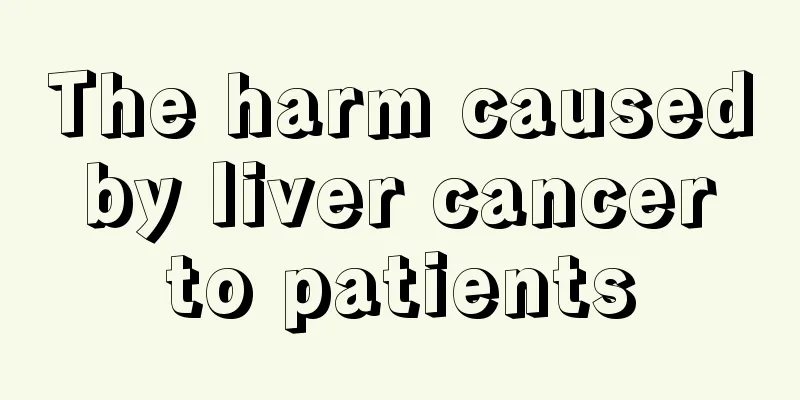What's wrong with feeling flustered and weak

|
Nowadays, people basically work in the office, maintain the same posture all the time, do not exercise regularly, have irregular work and rest schedules, often stay up late, seriously lack sleep, and are exposed to computer radiation while working. Dizziness, nausea, and palpitations, these must have happened to many people. In severe cases, they may be accompanied by general weakness. So, what's going on when you feel weak and palpitating? 1. Feeling weak and flustered may be a cervical spine problem Dizziness, neck discomfort, headache, or numbness and pain in the upper limbs: these are often caused by vertebral basilar artery insufficiency due to cervical spondylosis, which is the most common disease that causes dizziness. 2. Feeling weak and flustered may be caused by muscle fatigue There is another type of dizziness that is common among white-collar workers: sitting in the office looking at the computer every day, feeling dizzy when getting off work, and feeling soreness and discomfort in the neck muscles. This situation is caused by maintaining a posture for too long and tense neck muscles. Appropriate cervical spine health exercises or acupuncture and massage treatments are needed, and physical exercise should be strengthened. 3. Be alert to palpitations when you feel weak and anxious Palpitations are a disease name in Chinese medicine. It refers to a disease in which the patient feels palpitations in the heart, is nervous and uneasy, and even loses control of his/her self. The disease is mostly caused by physical weakness, fatigue, emotional injury, invasion of external evil, etc., which lead to restlessness of the mind and cause the disease. The disease is located in the heart. According to the clinical manifestations of the disease, it should be distinguished whether the lesions involve the liver, spleen, lungs, and kidneys, whether it involves one organ, or multiple organs. The pathogenesis of palpitations can be divided into deficiency and excess, so the treatment should be divided into deficiency and excess. Deficiency syndrome should be treated by tonifying qi, nourishing blood, nourishing yin, and warming yang; excess syndrome should be treated by removing phlegm, transforming fluid, clearing heat, and removing blood stasis. However, this disease is often a mixture of deficiency and excess, and the priority, urgency and slowness of deficiency and excess are different, so the treatment should take both into consideration accordingly. At the same time, since palpitations are characterized by restlessness, methods of calming the mind and soothing the nerves should be used as appropriate. |
<<: Tips on how to wash paint off your hands
>>: I feel panicked every time I wake up
Recommend
What to do if you strain your neck muscles? This is the most correct way to do it
Neck muscle strain is also very common. Muscles i...
What is the disease of multiple nodules in both lungs
Multiple nodules in both lungs can be said to be ...
What to do if there is white foam on kimchi
Pickled cabbage is a dish with a unique flavor. M...
How do middle school students tie their hair to look good
Middle school students are often the spokesperson...
Is early-stage surgery for esophageal cancer open surgery or minimally invasive surgery?
Surgery generally refers to open surgery. Minimal...
Can needles be sterilized by burning them with fire?
Acupuncture is a treatment method with a very lon...
The relationship between esophageal cancer and eating habits
Looking at the high-incidence areas of esophageal...
The harm of pure food
Fasting food has a history of more than 5,000 yea...
What is the cardiopulmonary resuscitation technique
In people's daily lives, they always encounte...
How does group b streptococcus cause
People may find it difficult to understand Group ...
How long can sperm survive in the air?
The quality of sperm depends on the probability o...
How to use medication in the early stages of teratoma
How to use medication in the early stage of terat...
How to make Dragon Boat Festival sachets?
There are many traditional customs among the peop...
What is the reason for the growth of pimples on the glans?
Many patients develop erythema or small papules o...
How to remove birthmarks on the belly
Who doesn't want flawless skin? However, the ...









